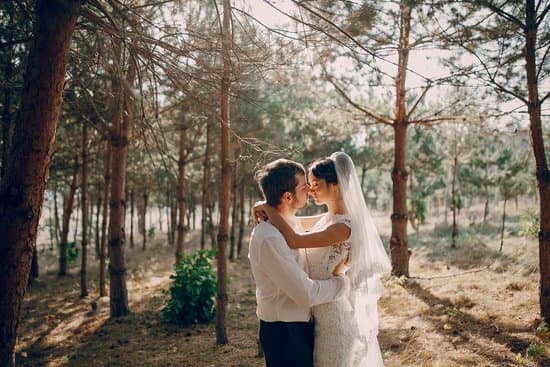Are you considering a career as a wedding bartender and wondering how much you could potentially make? In this article, we will explore the world of wedding bartending, including the job description, average pay, factors affecting pay, tips and gratuity, benefits and perks, and career outlook. By the end of this article, you’ll have a better understanding of whether wedding bartending is a lucrative career choice for you.
Wedding bartenders play a crucial role in making any wedding celebration a success. Not only do they mix and serve drinks to wedding guests, but they also contribute to creating an enjoyable and memorable atmosphere for the bride, groom, and their loved ones. But how much do wedding bartenders make? Let’s delve into the specifics to find out.
In this comprehensive guide, we will break down the job description of a wedding bartender, explore the average pay in this field, examine the various factors that can affect a bartender’s salary, discuss tips and gratuity potential, highlight the benefits and perks that come with this career choice, and look at opportunities for advancement and growth in the industry.
Whether you are an aspiring bartender or simply curious about this profession, keep reading to uncover all there is to know about how much wedding bartenders make.
Job Description
A wedding bartender is responsible for providing beverage service at wedding receptions and other related events. Their primary role is to mix and serve drinks to guests, ensuring that everyone has a great time. In addition to mixing and serving drinks, a wedding bartender is also responsible for setting up the bar area, stocking inventory, and keeping the bar clean and organized throughout the event.
Duties
Wedding bartenders are tasked with creating a welcoming and friendly atmosphere for guests. They must take drink orders, prepare cocktails, pour beer and wine, and provide excellent customer service. In some cases, they may also be responsible for creating a signature cocktail for the bride and groom or managing a cash bar if required.
Skills
A successful wedding bartender should have strong communication skills, be able to work well under pressure, and have an extensive knowledge of different types of alcohol and mixing techniques. They should also be familiar with state laws regarding alcohol consumption and be able to handle difficult or intoxicated guests in a professional manner.
Attire
Another important aspect of a wedding bartender’s job description is their attire. Bartenders typically dress in accordance with the theme or dress code of the wedding. It’s essential for them to present themselves professionally while still being comfortable enough to move around and work efficiently.
Overall, the role of a wedding bartender involves much more than just pouring drinks. It requires a combination of customer service skills, mixology expertise, professionalism, and adaptability to ensure that every guest has an enjoyable experience during the event.
Average Pay
Wedding bartenders make a varying amount of money depending on several factors such as location, experience, and special skills. According to the Bureau of Labor Statistics, the average hourly wage for bartenders, including those at weddings, is around $12.28 as of May 2020. This translates to an annual salary of approximately $25,580. However, it’s essential to note that these figures may be different for wedding bartenders due to the nature of their work.
One significant factor that affects how much wedding bartenders make is the location of the event. In areas with a higher cost of living or a more affluent clientele, wedding bartenders tend to earn more.
For example, in cities like New York and Los Angeles, where weddings can be quite lavish and expensive, wedding bartenders may command higher pay compared to smaller towns or rural areas. It’s not uncommon for experienced wedding bartenders in high-end locations to make upwards of $25 per hour.
Another crucial aspect that influences a wedding bartender’s earnings is their level of experience and any special skills they bring to the table. Seasoned professionals with years of experience may demand higher pay than those who are just starting in the industry. Additionally, bartenders who have certifications in mixology or sommelier training may also earn more due to their specialized knowledge and expertise.
| Location | Average Hourly Wage |
|---|---|
| New York City | $20-30 |
| Rural Areas | $10-15 |
Factors Affecting Pay
When it comes to determining how much wedding bartenders make, several factors play a crucial role in determining their pay. Location, experience, and special skills all have an impact on a bartender’s earning potential. Let’s delve into these factors to understand the complexities of wedding bartender salaries.
First and foremost, the location of the wedding or event greatly influences how much a bartender can expect to earn. In areas with higher costs of living or where there is high demand for bartenders, such as major metropolitan areas or popular wedding destinations, bartenders may command higher hourly wages or event rates. On the other hand, in rural areas or regions with lower demand for bartenders, the pay scale might be more modest.
Experience is another significant factor that affects the earning potential of wedding bartenders. Typically, individuals with extensive experience in bartending are able to negotiate higher wages due to their advanced skill set and proven track record in serving at events. Bartenders who have worked at numerous weddings and have honed their craft over the years are likely to earn more than those who are just starting out in the industry.
Additionally, special skills such as mixology knowledge, flair bartending expertise, and sommelier certifications can also contribute to higher pay for wedding bartenders. Clients may be willing to pay more for bartenders who can create unique and impressive cocktails or provide recommendations on wine pairings for various dishes served at the event. Demonstrating exceptional skills and expertise in these areas can certainly translate to a higher income for wedding bartenders.
Tips and Gratuity
When it comes to working as a wedding bartender, the potential to earn tips can greatly impact how much a bartender makes in total. Tips are a significant part of a wedding bartender’s income and can vary widely depending on a number of factors. From the size of the wedding to the generosity of the guests, there are several considerations that play into how much a wedding bartender can make in tips.
Factors Affecting Tip Earnings
One major factor that affects how much a wedding bartender can make in tips is the size of the guest list. Larger weddings typically mean more guests and therefore more opportunities for tips. Additionally, the type of bar service being offered can also impact tip earnings. For example, if specialty cocktails or high-end liquor options are available, guests may be more inclined to leave larger tips.
The overall atmosphere and level of satisfaction at the wedding can also influence tip amounts. A fun and lively reception where guests are enjoying themselves may result in higher tip earnings for the bartender. On the other hand, if guests are dissatisfied with service or wait times at the bar, it could potentially impact how much they choose to tip.
Industry Standards and Etiquette
It’s important to note that tipping etiquette can vary based on location and cultural norms. In many cases, it is customary for guests to tip their bartenders, particularly if they provide exceptional service throughout the event. Some couples may even choose to include a gratuity line on their bar tab invoice as a subtle suggestion for guests to leave a tip.
Ultimately, while there is no set formula for how much wedding bartenders can make in tips, it is an important aspect of their overall earnings potential. With careful attention to guest satisfaction and quality service, bartenders have the opportunity to significantly increase their income through generous tips from grateful wedding attendees.
Benefits and Perks
Wedding bartenders can expect more than just a competitive salary when working in this industry. One of the major perks of being a wedding bartender is the opportunity to work in a dynamic and festive environment. Unlike bartending at a typical bar or restaurant, wedding bartenders get to be part of a joyous occasion and interact with guests who are celebrating a special day. This can make the job more enjoyable and rewarding for individuals who thrive in social settings.
Another perk of being a wedding bartender is the flexibility in scheduling that it offers. Many wedding bartending gigs are on weekends or evenings, which can be ideal for individuals with day jobs or students looking to make some extra income. Additionally, because weddings are typically planned well in advance, it allows for better control over one’s work schedule compared to other types of bartending jobs.
In terms of benefits, some wedding bartenders may also receive perks such as free meals during their shifts or access to vendor meals provided by the wedding reception. While these may seem like small benefits, they can add up over time and contribute to the overall appeal of working as a wedding bartender.
| Perk | Description |
|---|---|
| Festive Environment | Wedding bartenders get to be part of joyous occasions and interact with celebrating guests. |
| Flexibility | Weekend and evening shifts offer flexibility for individuals with other commitments. |
| Free Meals | Some wedding bartenders receive free meals during their shifts, adding to the overall benefits package. |
Career Outlook
For individuals pursuing a career as a wedding bartender, there are various opportunities for advancement and professional growth within the industry. With the right skills, experience, and dedication, bartenders can elevate their careers to new heights.
Here are some potential career paths and opportunities for advancement in the world of wedding bartending:
- Head Bartender: After gaining several years of experience, some bartenders may have the opportunity to become head bartenders. In this role, they may be responsible for training new staff, creating drink menus, and overseeing the bar operations during events.
- Bar Manager: For those with strong leadership skills and business acumen, advancing to a bar manager position may be a natural next step. Bar managers are responsible for all aspects of bar operations, including inventory management, staffing, and financial planning.
- Event Coordinator: Some experienced wedding bartenders may transition into event coordination or planning roles. With firsthand knowledge of the beverage aspect of weddings, they can leverage their expertise to help plan and execute successful events.
- Entrepreneurship: Bartenders with a passion for mixology and hospitality may choose to open their own bars or catering businesses specializing in wedding services.
Overall, there is ample opportunity for growth and advancement within the field of wedding bartending. By continuously honing their skills and gaining experience, aspiring professionals can carve out fulfilling and lucrative careers in this industry.
It’s important to note that these career paths often come with higher earning potential than entry-level positions. As such, dedicated professionals have the chance to significantly increase their income over time.
Conclusion
In conclusion, the world of wedding bartending offers a unique and potentially lucrative career path for those passionate about mixology and hospitality. While the average pay for wedding bartenders may vary depending on factors such as location, experience, and special skills, the potential for earning a substantial income through tips and gratuity is significant.
Additionally, the opportunity for career advancement and growth in the field of bartending presents itself as a promising aspect for those looking to make a long-term commitment to this profession.
When considering how much do wedding bartenders make, it’s important to take into account the potential for tips and gratuity, which can significantly boost overall earnings. The freedom to showcase unique skills and creativity in cocktail making also adds an enticing element to this career choice. With the possibility of benefits and perks that come with certain positions, such as flexible hours or employee discounts at event venues, wedding bartending can provide more than just financial rewards.
Overall, while pursuing a career in wedding bartending requires hard work, dedication, and customer service skills, it can undoubtedly be a lucrative choice for those who are willing to put in the effort. With potential for both financial gain and personal fulfillment through creativity and customer interactions, becoming a wedding bartender holds promise as a rewarding career option.
Frequently Asked Questions
What Kind of Bartender Makes the Most Money?
The type of bartender that typically makes the most money is an experienced bartender who works in a high-end or busy establishment. These bartenders often have developed a loyal customer base and receive generous tips due to their exceptional customer service and drink-making skills.
How Many Bartenders Do You Need for 75 Guests?
For an event with 75 guests, you would typically need at least two bartenders to efficiently serve everyone. This allows for one bartender to focus on making drinks while the other takes orders and handles payment, ensuring that guests are served in a timely manner.
Can I Make 100k as a Bartender?
It is possible to make $100k as a bartender, but it requires working in a high-paying establishment, consistently delivering excellent service, and possibly securing additional sources of income through tips and bonuses. With dedication and skill, reaching this income level is achievable for some bartenders.

I have been involved in marriages for over 20 years helping couples and singles understand more about them.





